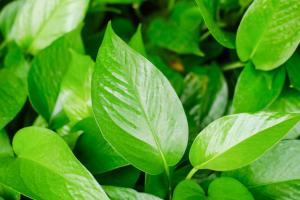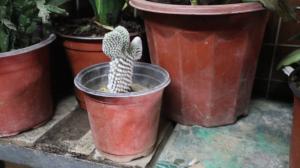Can Carrots be Planted Next to a Black Walnut Tree
Black walnut trees are native to North America and are prized for their beautiful wood, delicious nuts, and unique flavor. However, these trees are also known to produce a chemical called juglone, which can be toxic to certain plants that grow nearby. Carrots, in particular, are one of the plants that are believed to be sensitive to juglone. In this article, we will explore whether or not carrots can be grown successfully next to a black walnut tree.
Understanding Juglone
Juglone is a toxic substance that is found in various parts of the black walnut tree, including the bark, leaves, and nut hulls. This chemical is produced by the tree as a natural defense mechanism against competing plants, pests, and diseases. Juglone can be released into the soil through the roots of the tree, and it can remain active in the soil for up to two years after the tree is removed.
When juglone is present in the soil, it can affect the growth and development of nearby plants, especially those that are sensitive to it. Some of the symptoms of juglone toxicity in plants include yellowing leaves, stunted growth, and even death.
Carrots and Juglone Sensitivity
Carrots are one of the plants that are believed to be sensitive to juglone. However, the extent to which they are affected can vary depending on several factors, including the age and size of the black walnut tree, the proximity of the carrot patch to the tree, and the soil conditions.
In general, younger, smaller trees will produce less juglone and will have a milder impact on nearby plants. Additionally, plants that are located further away from the tree may be less affected than those that are planted directly underneath the tree's canopy.
How to Grow Carrots Near a Black Walnut Tree
If you want to grow carrots near a black walnut tree, there are a few things you can do to minimize the effects of juglone on your plants:
Choose a location that is as far away from the tree as possible while still receiving enough sunlight.
Plant carrots in raised beds or containers that are filled with fresh, nutrient-rich soil.
Add organic matter to the soil to help neutralize the effects of juglone.
Avoid planting any other juglone-sensitive plants (such as tomatoes, potatoes, and peppers) in the same area.
By following these tips, you may be able to successfully grow carrots near a black walnut tree without any problems. However, it is important to monitor your plants closely and look for any signs of juglone toxicity, such as yellowing leaves or stunted growth. If you notice any issues, it may be best to relocate your garden to a different area.
Conclusion
While black walnut trees can produce juglone, a chemical that can be toxic to certain plants, it is still possible to grow carrots successfully near these trees with the proper precautions. By choosing the right location, using high-quality soil, and avoiding other sensitive plants, you can enjoy a bountiful harvest of delicious and nutritious carrots even if you have a black walnut tree on your property.

 how many times do yo...
how many times do yo... how many planted tre...
how many planted tre... how many pine trees ...
how many pine trees ... how many pecan trees...
how many pecan trees... how many plants comp...
how many plants comp... how many plants can ...
how many plants can ... how many plants and ...
how many plants and ... how many pepper plan...
how many pepper plan...































